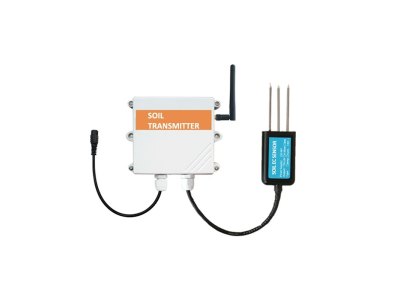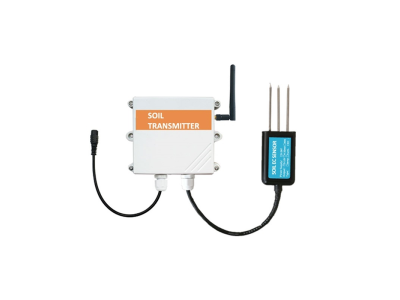Precision agriculture, also known as smart farming or site-specific crop management, is a modern approach to farming that utilizes advanced technologies and data-driven practices to optimize crop production. One of the key components of precision agriculture is the use of soil sensors, which provide real-time data on soil conditions. This article explores the applications and benefits of soil sensors in enhancing crop management practices, improving productivity, and promoting sustainable agriculture.
The Importance of Soil Conditions in Crop Management

Soil plays a critical role in crop growth and development as it serves as the medium for plant roots, provides essential nutrients, and regulates water availability. Understanding the soil conditions in a field is vital for effective crop management and optimizing resource utilization. Soil properties such as moisture content, temperature, nutrient levels, and pH directly influence crop health, yield potential, and susceptibility to stressors such as drought, pests, and diseases.
Traditionally, farmers relied on manual techniques and past experience to assess soil conditions. However, these methods are often time-consuming, labor-intensive, and prone to human error. Soil sensors offer an innovative solution by providing accurate and real-time data on multiple soil parameters, enabling farmers to make informed decisions based on precise information.
Applications of Soil Sensors in Precision Agriculture
Soil Moisture Monitoring: Soil moisture is a crucial parameter in crop management as it directly affects plant water uptake, irrigation scheduling, and water use efficiency. Soil sensors equipped with moisture probes can measure the moisture content at different depths in the soil profile. This data helps farmers determine when and how much to irrigate, preventing over- or under-watering and optimizing water usage.
Nutrient Management: Soil sensors can provide insights into the nutrient status of the soil, allowing farmers to adjust fertilization practices accordingly. Sensors equipped with electrical conductivity (EC) probes measure the soil's ability to conduct electricity, which correlates with nutrient levels. By monitoring EC values, farmers can apply fertilizers at the right time and in the right amounts, optimizing nutrient uptake by crops and reducing the risk of nutrient runoff or leaching.
pH Monitoring: Soil pH influences nutrient availability, microbial activity, and overall soil health. Sensors specifically designed to measure soil pH can provide real-time data on soil acidity or alkalinity. This information helps farmers adjust pH levels through targeted soil amendments, such as adding lime or sulfur, to create optimal conditions for crop growth.
Temperature Monitoring: Soil temperature affects seed germination, root growth, and nutrient uptake. Soil sensors equipped with temperature probes can continuously monitor soil temperature at different depths. This data helps farmers determine the best time for planting, manage crop development stages accurately, and identify potential issues related to cold stress or excessive heat.
Salinity Management: Excessive salt accumulation in the soil can adversely affect crop growth and yield. Soil sensors equipped with salinity probes can measure the electrical conductivity of the soil solution, which reflects salt concentrations. By monitoring salinity levels, farmers can implement appropriate irrigation and drainage strategies to prevent salt build-up and ensure crop productivity.
Benefits of Soil Sensors in Precision Agriculture
Improved Resource Efficiency: Soil sensors enable precise and targeted resource management, leading to improved resource efficiency. By providing accurate data on soil conditions, farmers can optimize irrigation scheduling, reduce water usage, minimize fertilizer waste, and enhance nutrient uptake by crops. This not only improves economic viability but also reduces the environmental impact of agricultural activities.
Enhanced Crop Health and Yield: By monitoring soil conditions in real-time, farmers can detect and address any issues promptly, optimizing crop health and maximizing yield potential. Adjusting irrigation, fertilization, and pH levels based on sensor data ensures that crops receive the necessary nutrients and water at the right time, minimizing stressors and promoting optimal growth.
Increased Cost Savings: Precision agriculture practices enabled by soil sensors can result in cost savings for farmers. By accurately determining soil moisture levels, farmers can avoid over-irrigation, reducing water and energy costs. Additionally, precise nutrient management based on sensor data prevents excessive fertilizer use, saving on input costs. Moreover, proactive pest and disease management, facilitated by timely monitoring, can prevent yield losses and minimize the need for expensive corrective measures.
Environmental Sustainability: Precision agriculture promotes en






